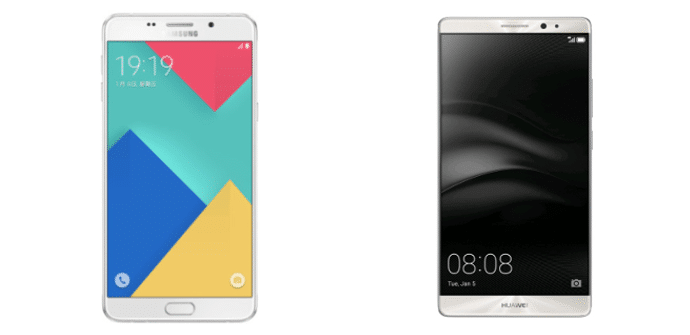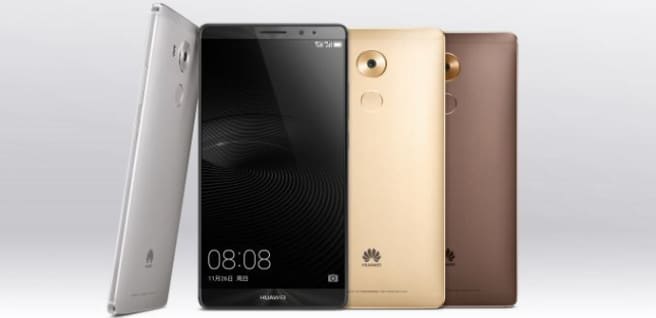
Yesterday we left you a comparative in which we faced the newly presented A9 Galaxy Pro with the phablet version of the flagship of Samsung, Galaxy Edge S7, but there is another inescapable reference in the case of a 6-inch phablet of mid-high range, which is none other than the Huawei Mate 8, another release that is still quite recent. The phablet of the Chinese company is a more properly high-end device, but the difference of price with this other it shouldn't be too high, in principle. Is the extra investment worth it or not? Let's see him reviewing the Technical specifications both.
Integrated
Despite that el A9 Galaxy Pro It would still be within the mid-range, the truth is that we find in it a few of the characteristics that usually define high-end smartphones and it stands up to the Mate 8: both have premium materials (glass of Samsung and metal that of Huawei) and both have a fingerprint reader.
Dimensions
We already told you yesterday also that with regard to the dimensions we cannot say anything definitive, since for the moment those of the A9 Galaxy Pro They are not official, although we hope that at least in size there are practically no variations with respect to the standard version, which would mean that it would be somewhat larger than the Mate 8 (16,17 x 80,9 cm vs 15,71 x 8,06 cm). If what the leaks pointed out is correct, it seems that it would be just as thick (7,9 mm) but also a little heavier (210 grams versus 185 grams).
Screen
As we said at the beginning, these two phablets are tied when it comes to screen size (6 inches), but also in terms of resolution (1920 x 1080) and therefore also in pixel density (PPI 367). The only big difference between the two is that the A9 Galaxy Pro is a Super AMOLED screen and the Mate 8 it's LCD.
Performance
Here the superiority of the Mate 8 is clear, with a much more powerful last generation processor (Snapdragon 652 eight-core and 1,8 GHz maximum frequency vs. Kirin 950 eight-core and 2,3 GHz frequency), although the A9 Galaxy Pro manages to match even the top model, 4 GB of RAM.
Storage capacity
Equality returns in the storage capacity section, particularly if what interests us is the basic model, which in both cases comes with 32 GB internal memory but with slot micro-SD. Yes, we must say in favor of the Mate 8, which is also available with 64 GB.
Cameras
The technical specifications of their respective cameras are also very similar: both the main one of the A9 Galaxy Pro as of the Mate 8 sound 16 MP and they have an optical image stabilizer, (although the Huawei phablet has some extras like dual LED flash and phase detection autofocus) and there is not much difference in terms of aperture (f / 1.9 vs f / 2.0), and also the front of both are of 8 MP.
Autonomy
We have already shown you that the Mate 8 is a real beast in terms of autonomy, and although we will have to wait to see if the Galaxy A9 Pro manages or not to stand up to it, what cannot be denied is that it starts at least with good cards for this, with a battery of a capacity even greater than that of the Hauwei phablet, which was already spectacular (5000 mAh against 4000 mAh).
Price
If the prices announced for China were maintained when it arrived in Spain, the balance would tip in favor of the A9 Galaxy Pro, but the truth is that the price of Mate 8 It is not much higher either: the first will be sold in the Asian giant so the exchange rate would be close to $500, while the second was initially sold for $600, but in a dealer you can find it even a little cheaper.

